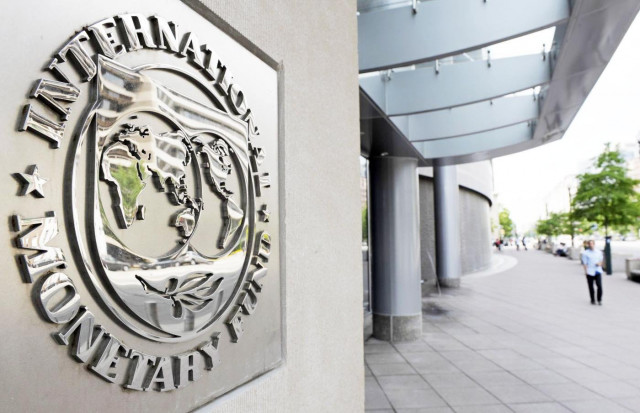A tough road ahead
With a little over half of the total $6.6-billion loan already been utilised, the road ahead is the toughest yet

IMF gives go-ahead to $506.4 million loan tranche. PHOTO: AFP
Being able to shore up its foreign exchange reserves and showing good progress under the Benazir Income Support Programme, the government has done reasonably well so far. But this was the easy part. The IMF has been concerned with performance in areas of taxation and the energy sector. The China-Pakistan Economic Corridor may very well be a step forward in alleviating energy sector woes, but it’s a long-term project and the next IMF review will be held in just a few months. These two areas have been the blemishes on the government’s report card for one reason or the other. Call it the Federal Board of Revenue’s inept working or deep-rooted issues of the power sector, the government has had its work cut out when it has come to the areas of taxation and the energy crisis. Tax collection, revised downwards time and again, has remained a thorny issue. This is despite the government introducing mini-budgets during the fiscal year. Increasing collection through withholding taxes does not make sense either since the money collected through them is supposed to be given back when tax returns are filed. Sales tax refunds are still pending. These collections help the FBR show a higher collection on its books. But has the taxation structure changed? The formation of the Tax Reforms Commission did not help too much either since the major steps it recommended are likely to be stopped by influential lobbies. Privatisation of state-owned power companies has been hindered as well and now there are calls to let the government take over some of them. How Pakistan will get through its toughest phase yet is anybody’s guess.
Published in The Express Tribune, June 29th, 2015.
Like Opinion & Editorial on Facebook, follow @ETOpEd on Twitter to receive all updates on all our daily pieces.



















COMMENTS
Comments are moderated and generally will be posted if they are on-topic and not abusive.
For more information, please see our Comments FAQ